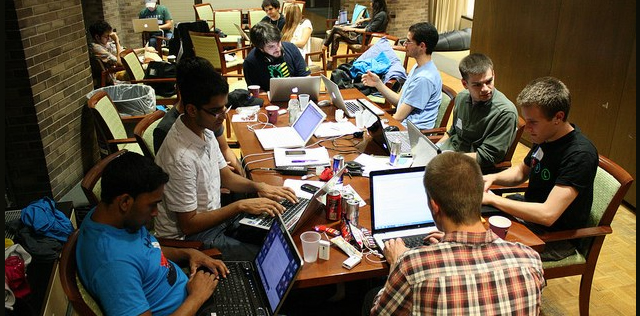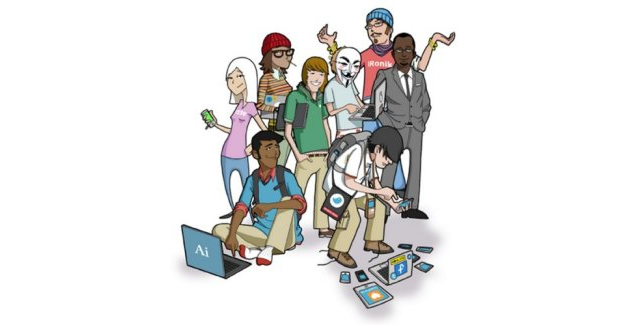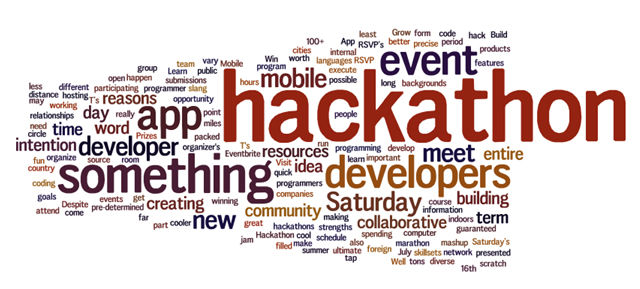Collaboration and education are two key words intrinsically associated with hackathons (the third being ‘free pizza’!). Hackathons promise a chance to meet other coders or designers, network with influencers and industry experts, and even find recruitment opportunities. It isn’t surprising that, with the spread of startup culture across geographic boundaries, hackathons too have started mushrooming in the likeliest – and the unlikeliest – of places.
There are certain rules – both said and unsaid – that apply when attending hackathons. While most hackathons remain informal, free-wheeling affairs, you can learn a lot more from them if you follow a few tips:
1. It’s not about competition
Barring a few headlining hackathons such as TechCrunch’s TC Disrupt, most hackathons are noncompetitive. As a coder, it can be difficult to refrain from launching into an intellect-measuring competition; but to be successful at a hackathon, this is exactly what you must do.
These events are opportunities to learn from others and make new connections, perhaps even find co-founders for a startup. To treat them as competitive code-slinging intellectual wrestling matches would be a terrible waste of the platform.

Even in competitive hackathons, remain open to overtures from other participants and keep all competitive hostility in check. You never know when the perfect opportunity might drop in your lap, and it could come from anywhere.
2. Do plan ahead
Most events have pre-decided themes – mobile, consumer web, data, etc. Acquaint yourself with the theme beforehand and prepare a flexible road-map for the actual hack day. At the same time, don’t straitjacket your creativity with an obsessively planned-out hack day project.
It helps to know what you might build; it helps even more to be receptive to ideas and lessons from other participants at the event.
3. Attend the right hackathon.
Different hackathons attract different hackers. Some, such as Rewired State, are geared towards open data with a more relaxed atmosphere and plenty of socializing.
Others, such as TC Disrupt, are entrepreneurial in spirit and attract startup founders, would-be entrepreneurs looking for co-founders, and even odd VCs looking for the next big thing.

Pick a hackathon that fits your ideology, skills and interests. But at the same time, go beyond your comfort zone by attending a few events diametrically opposite to your domain of knowledge. Open-source, non-profit enthusiasts can learn a lot from for-profit startup founders, and vice versa.
The very point of a hackathon is to get coders out of their coding dens into a comfortable space to enable sharing and collaboration. If you are stooped before a solitary computer in a corner of the room on hack day, you are misinterpreting the method and the meaning of hackathons. Move around. Socialize. Hack events are filled with people whose interests and ideologies align. Don’t hesitate to chat up random strangers – it’s what you both are there for.

5. Take care of physical necessities
Eat, drink, sleep: three words that are often tossed out of the window at hack events. Mountain Dew, Red Bull and beer are often the drinks of choice at hackathons; skip them for a bottle of water and make sure that you stay hydrated throughout the event (which can stretch from a day to a whole week).
Likewise for food: eat to fuel your body, but not beyond it. Sleeping is rare at hack events – part of the fun is late-night coding sessions – but don’t let that stop you from taking a few hours off to catch your forty winks.
6. Discuss, analyze, interpret, reconnect
Once the hackathon is over and the excitement and nerves have worn off, reconnect with your newfound friends and acquaintances over Twitter, Facebook, and email. Discuss the event, analyze what you learned and interpret your findings.
The lessons from one hack event often carry over into real-world projects. Many even find co-founders for the next hot startup in the post-event follow-up (GroupMe was hacked together over a weekend, for instance).

7. Don’t get addicted
It’s easy to get hooked on hackathons, especially if you live in a tech mecca like San Francisco or New York that abounds with them: the chance to meet like-minded individuals, hack for fun, and possibly build something useful is alluring.
However, there is a very real danger of getting addicted to the simple highs of hack events, especially if there is a potential of a bigger pay-off in the foreseeable future (an interview with a VC, a spot on TechCrunch, etc.). Too many coders and would-be entrepreneurs end up chasing these improbable rewards in lieu of doing actual work, which rarely works out.
Conclusion
Treat hackathons as what they are meant to be: informal platforms to build, connect and collaborate with like-minded individuals. You’ll make new friends, learn new things, and perhaps even profit from them. Above all, have fun!
Related Topics
Top